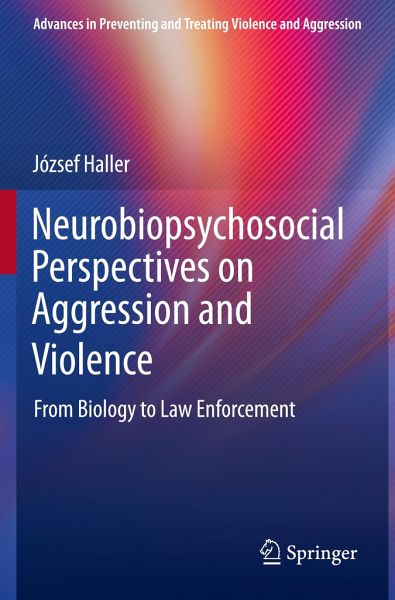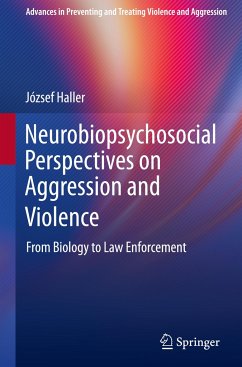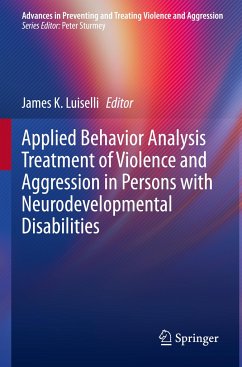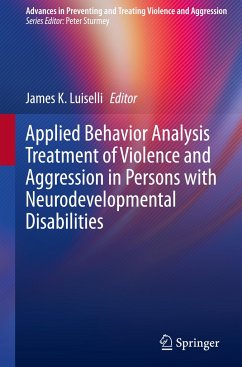
Neurobiopsychosocial Perspectives on Aggression and Violence
From Biology to Law Enforcement
Versandkostenfrei!
Versandfertig in 6-10 Tagen
98,99 €
inkl. MwSt.
Weitere Ausgaben:

PAYBACK Punkte
49 °P sammeln!
This book bridges the gap between basic science, which deals with general concepts of aggression and its neurobiological foundations, and law enforcement as one of the applied fields of aggression research. It addresses the current state of research and practice and compares and integrates the concept of aggression with violent crime. Chapters examine the types of criminal careers that cross the boundary between the two and summarize the biological, psychological, and social factors that underlie particular types of criminal careers. Subsequent chapters discuss overlaps between biological and ...
This book bridges the gap between basic science, which deals with general concepts of aggression and its neurobiological foundations, and law enforcement as one of the applied fields of aggression research. It addresses the current state of research and practice and compares and integrates the concept of aggression with violent crime. Chapters examine the types of criminal careers that cross the boundary between the two and summarize the biological, psychological, and social factors that underlie particular types of criminal careers. Subsequent chapters discuss overlaps between biological and psychological factors and detail how and to what extent aggression may serve as explanatory mechanisms for violence. The book also discusses the relationship between social problems and neuropsychological deficits, addressing how the neuropsychological deficits lead to the intergenerational recycling of social problems. Finally, the volume explores violence and aggression from a neurobiologicalperspective.
Topics featured in this book include:
The heritability of aggressiveness and violence-proneness.Glucocorticoids in humans.Aggression circuitry in animals.Distorted circuitry in violent animals.Biological factors of psychological change.
Neurobiopsychosocial Perspectives on Aggression and Violence is a must-have resource for researchers, clinicians and other professionals, and graduate students in forensic psychology, criminology/criminal justice, public health, developmental psychology, psychotherapy/counseling, psychiatry, social work, educational policy and politics, health psychology, nursing, and behavioral therapy/rehabilitation.
Topics featured in this book include:
The heritability of aggressiveness and violence-proneness.Glucocorticoids in humans.Aggression circuitry in animals.Distorted circuitry in violent animals.Biological factors of psychological change.
Neurobiopsychosocial Perspectives on Aggression and Violence is a must-have resource for researchers, clinicians and other professionals, and graduate students in forensic psychology, criminology/criminal justice, public health, developmental psychology, psychotherapy/counseling, psychiatry, social work, educational policy and politics, health psychology, nursing, and behavioral therapy/rehabilitation.














